Planned Explosion Covered Little Village In Dust During Respiratory Pandemic
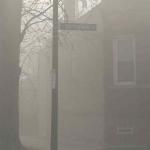
LITTLE VILLAGE — City officials on Sunday sought to lay the blame for the massive dust cloud that descended on Little Village on a “dishonest” developer that demolished an old coal plant smokestack the day before.
But the city had an active role in the demolition, Mayor Lori Lightfoot acknowledged, by approving permits and overseeing the work Saturday.
In the midst of managing the city’s battle against the deadly coronavirus “literally robbing people of their ability to breathe,” Lightfoot had to scramble to contain the damage from Saturday’s emergency.
Activists had begged the city not to allow the demolition, but it instead proceeded with representatives from the city’s Department of Health, Buildings and Fire Department on hand to watch.
At a Sunday morning press conference on the site of the old Crawford Coal plant, a furious mayor lashed out at Hilco Development Partners for allowing the dust cloud, and acknowledged the city doesn’t yet know the extent of what exactly landed on Little Village.
Lightfoot said Hilco had given the city repeated assurances that its contractor would not let any debris escape the site. Instead, “a massive plume of dust drifted across this area, dropping dirt and particulate matter across homes, cars, businesses, trees and every other inch of this community.”
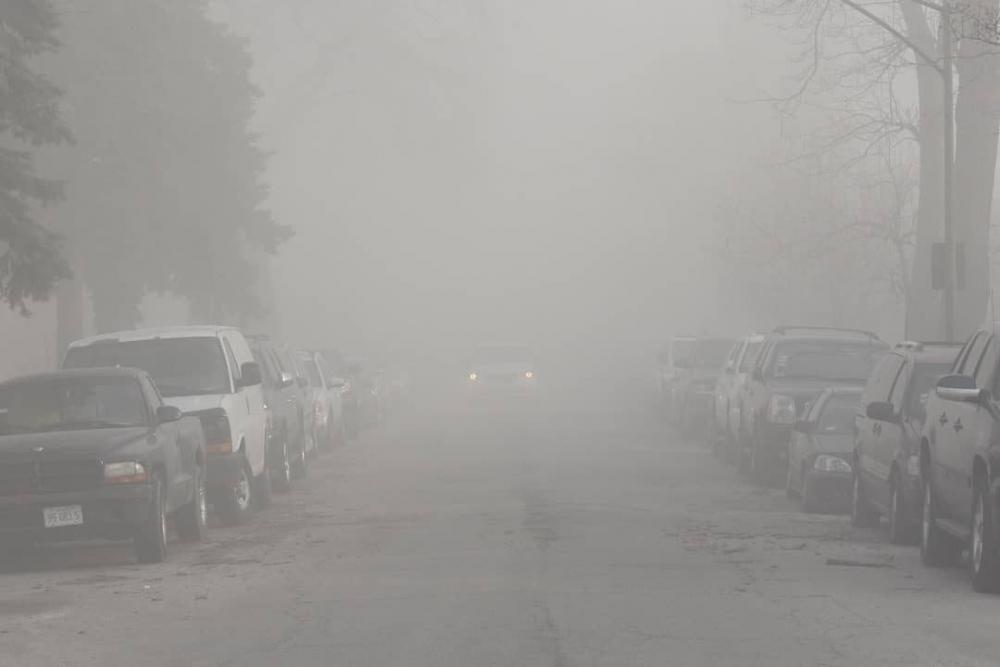
Little Village streets were covered in dust following demolition of a smokestack at the site early Saturday morning. maclovio/instagram@macnifying_glass
Lightfoot said Hilco has promised to use high-powered water canons to spray down the smokestack before, during and after it was toppled, but she said they failed to do so based on video she watched. Even if there were canons used, “Whatever they had on site was woefully insufficient,” she said.
“I’m here to say to the city, this community and to Hilco … this is absolutely and utterly unacceptable,” the mayor said. “It’s unsafe, it’s unsanitary. I would not tolerate this in my neighborhood, and we’re not going to tolerate it here, either.”
Lightfoot shut down work at the site after dozens of photos and videos of the dust clouds emerged Saturday. But activist Kim Wasserman, who called on Lightfoot to stop the implosion from taking place, said it’s too late now.
“The smokestack is down and is in the air,” said Wasserman, who runs the Little Village Environmental Organization. “Asbestos, lead, particulate matter that’s in the air now. … People are petrified.”
Photographer Maclovio, who captured the aftermath, said he wasn’t prepared and struggled to breathe.
“I was caught in it. I wasn’t prepared for it so I made a makeshift mask. … My lungs started hurting, I’m not going to lie,” he said.
Just after the implosion, before photos and videos were widely shared, Lightfoot said the city’s Department of Public Health was “actively engaged with the owners of the property.” City agencies made sure there were precautions in place so there wasn’t more dust than a normal demolition, Lightfoot said.
Wasserman wants to know if this is what a normal demolition looks like.
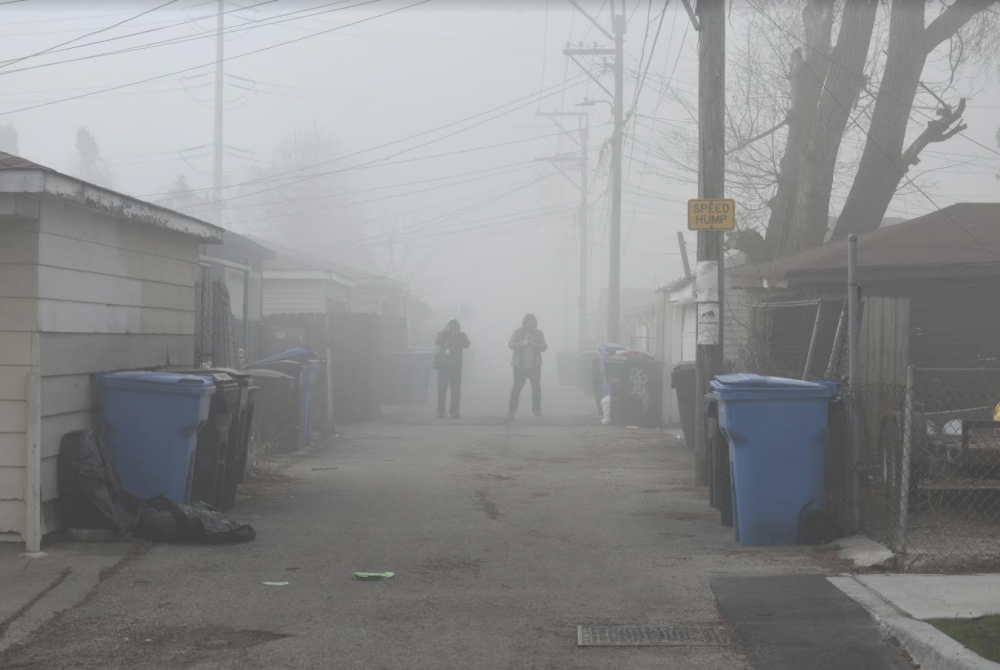
Little Village streets were covered in dust following demolition of a smokestack at the site early Saturday morning.
‘This is exactly what you told us was not going to happen’
Watching thick dust clouds waft through their streets, neighbors who live near the old Crawford Coal Plant were alarmed. Their alarm was magnified when they considered the timing — the demolition happened with little notice and in the middle of a respiratory pandemic on Easter weekend.
The resulting dust cloud blanketed Little Village, a South Side neighborhood home to a majority Latino population and a port of entry to Mexican immigrants.
Wasserman, who works to track environmental injustices on the South Side, said she found out the developer planned to blow up the smokestack at 11 p.m. Thursday. It was scheduled for 8 a.m. Saturday; she immediately called on Lightfoot to halt the demolition.
The city’s Department of Public Health and Department of Buildings had quietly issued permits for the demolition to Hilco Redovelopment Partners, the developer that owns the old coal plant site. The site is being redeveloped into a 1-million-square-foot distribution center.
There was no public meeting to warn neighbors. When Ald. Michael Rodriguez (22nd) learned about the planned implosion, he asked Hilco to notify neighbors via letters in English and Spanish. Those notices were mailed earlier this week, Hilco spokeswoman Julia Sznewajs said.
Rodriguez did not send his own notice to neighbors.
A canvass team also dropped flyers at homes near the site on Friday — hours before the demolition and posted an implosion notice on a project website on Thursday, the developer’s team said.
Little Village resident Lucky Camargo said her family didn’t receive a letter. The street team tucked rolled-up fliers into fences, Camargo said. Her family didn’t receive a letter, and many neighbors didn’t know the smokestack would be blown up.
“We get more notification with street cleaning, honestly,” she said. “Would this be happening in Lincoln Park or Lincoln Square? …I doubt it.”
Wasserman and others hurried to tell as many people as they could.
Meanwhile, the developer and city officials were assuring neighbors that the demolition would be safe.
Sznewajs, speaking for the developer, said abatement testing shows no presence of asbestos or lead in the smokestack. The Chicago Fire Department would be on hand with a fire truck to assist with dust suppression, she said.
But she refused to provide evidence backing up such claims, deferring questions to the city.
The Chicago Department of Public Health was monitoring the site weekly to ensure abatement work is being done safely at the site, said Susan Hofer, a spokeswoman for the city.
Hofer said the company was required to provide proof that remediation was completed and appropriate steps were taken to maintain air quality standards. Block Club has asked the city to make those reports public.
“The Chicago Department of Public Health has completed multiple inspections to evaluate the conditions, and the city does not expect any air quality concerns other than the normal dust that will be controlled with various water equipment,” Hofer said.
Despite the assurances, the demolition sent the dust, dirt and particulate matter across the neighborhood.
“This is exactly what we said was going to happen. This is exactly what you told us was not going to happen,” Wasserman said.
‘They are going to be held accountable to clean things up’
Now, after the dust has already covered homes, Rodriguez, Lightfoot and others are taking action.
Lightfoot issued a stop work order at the site and the city is investigating the incident. City officials will conduct air-quality checks, soil testing and distribute masks to nearby residents Sunday.
Lightfoot also ordered Hilco to do an immediate cleanup of the neighborhood, including cars and homes.
She said the city cited Hilco for the mishap and will bar work at the site until a full accounting of what happened is delivered. The study will look at what dust mitigation efforts were used, the impact of wind gusts on the cloud and more, the mayor said.
Ald. Rodriguez said he will push for no work to resume amid the coronavirus stay at home order.
Asked why he didn’t push to postpone the demolition, Rodriguez, the freshman alderman who represents the area, said “there was conversation” about delaying the demolition, but with city permits issued he felt he “didn’t have a say in that matter.”
Rodriguez now vows to hold Hilco “accountable” responsible for this.
“They are going to be held accountable to clean things up and make sure it doesn’t happen again,” Rodriguez said.
Rodriguez acknowledged this isn’t the first time the developer has had issues. This is the second time work has been stopped — the first time was because a worker died at the site.
And last summer, the company was fined a nominal fee a $10,000 after dust was seen blowing off the construction site.
On Sunday, Rodriguez said Hilco was “disingenuous” about its effort to keep the dust at bay, and “dishonest” about giving residents adequate warning.
But Rodriguez did acknowledge he should have warned neighbors faster himself.
“At this point, I wish I would have alerted residents but I didn’t, and for that I’m very sorry,” he said.
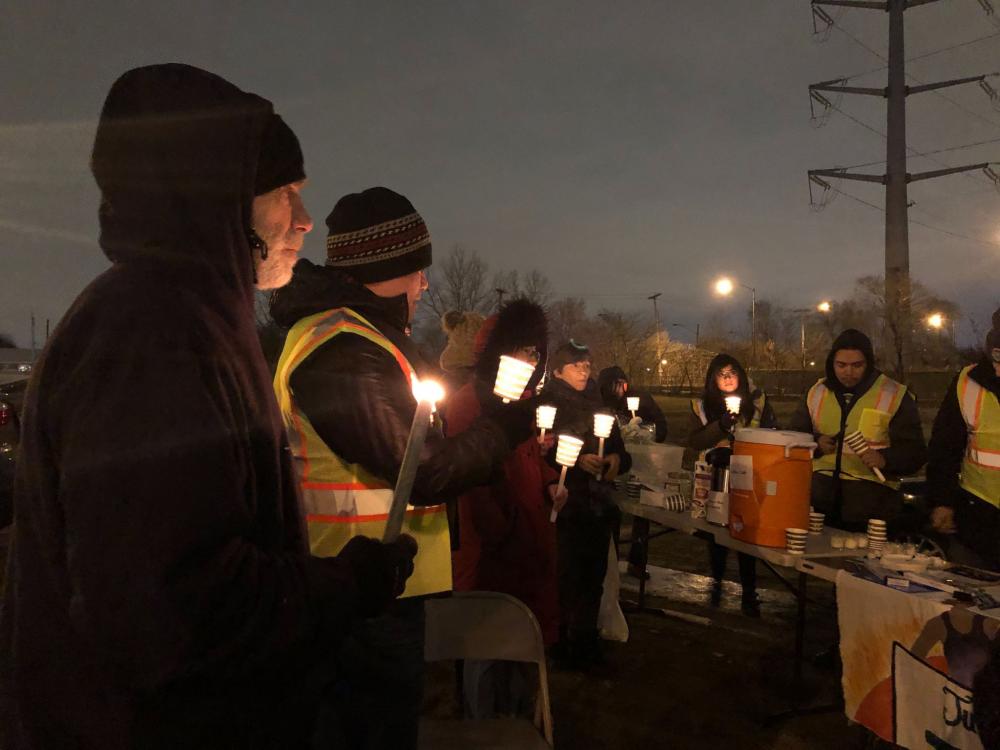
Little Village Environmental Justice Organization and residents hold a candle light vigil for Reynaldo “Rey” Grimaldo near the old Crawford Coal Plant Thursday night in Little Village. maclovio/instagram@macnifying_glass
‘People don’t care about us’
The Little Village Environmental Justice Organization is now being “inundated with calls” from panicked neighbors.
“We are being inundated with calls from people asking how do protect myself? How do I protect my family? How do I protect my parents,” Wasserman said.
The group has requested reports on asbestos and lead testing on the site, but has not received any reports, Wasserman said.
The implosion is “another example” of how Little Village and other Southwest Side communities are “sacrificed for a nonessential business,” Wasserman said. Peoples’ lives are being put at risk over the construction of a warehouse in the middle of the coronavirus pandemic, she said.
“The Alderman saying [Hilco Redevelopment Partners] did everything by the book, the fire department saying there were no problems. It sends a message that people don’t care about us,” Wasserman said.
CFD provided support on demolition of stack at the old Crawford power generation plant near the ship canal and Pulaski now being cleared for new development. Occured at 8 am April 11. No problems pic.twitter.com/0BVpxSjJVt
— Chicago Fire Media (@CFDMedia) April 11, 2020
For the immigrant neighborhood, “it’s hard enough when the federal government doesn’t care about you,” Wasserman said.
“But then your local government doesn’t care about you enough to postpone work at the site,” Wasserman said. “It gets to a point when you wonder: Where’s the humanity?”
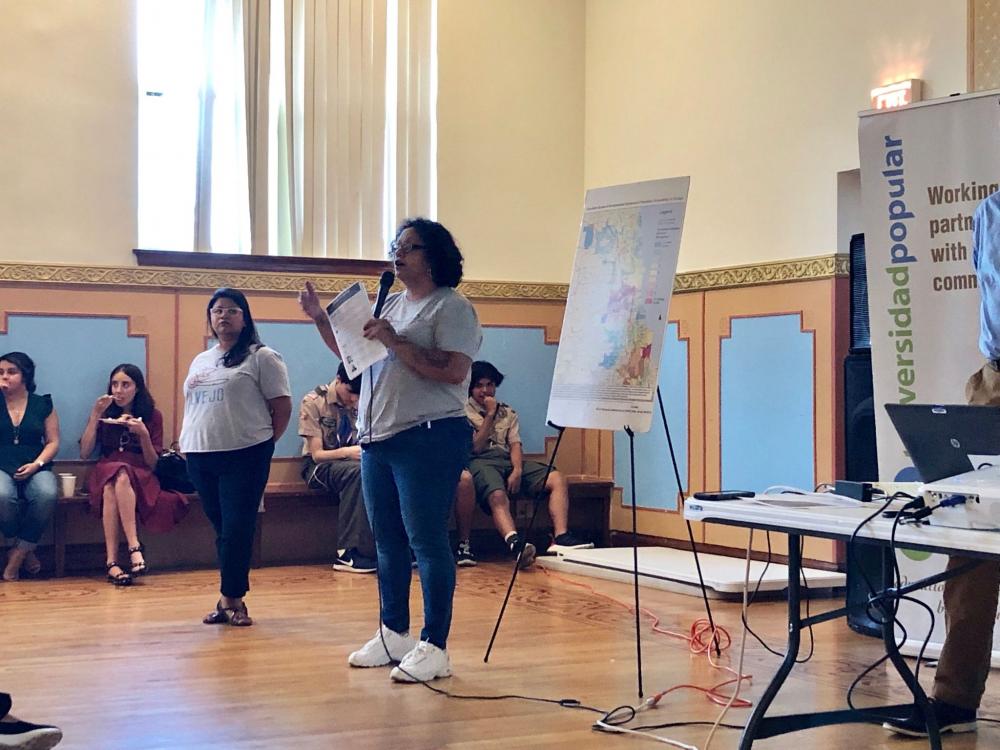
Little Village Environmental Justice Organization Executive Director Kim Wasserman talks to community members during meeting Tuesday night on the remediation and demolition of Crawford Coal Plant. maclovio/instagram@macnifying_glass
In response to photos circulating online, Hilco Redevelopment Partners said the demolition was “completed in close coordination with and full approvals by City and State authorities and included significant onsite safety and dust suppression measures provided by demolition experts and the Chicago Fire Department.”
The company said a contractor sweeped streets, cleaning the immediate vicinity surrounding the site.
“Contractors remain in close communication with local officials to ensure appropriate post-demolition clean-up.”
The company did not immediately respond to requests for comment on the mayor’s stop work order.
Mauricio Peña (@MauricioPena) is Pilsen, Little Village and West Loop reporter for Block Club Chicago mauricio@blockclubchi.org
Block Club Chicago is a nonprofit news organization dedicated to delivering reliable, nonpartisan and essential coverage of Chicago’s diverse neighborhoods.
Block Club Chicago was created by former DNAinfo Chicago editors following the shutdown of DNAinfo and Gothamist in November of 2017. After hearing from people all over the city about how much they missed our truly local coverage, we knew we had to get back to work.
Thanks to more than 3,000 Kickstarter backers and generous support from Civil, we were able to recruit a dedicated team of reporters ready to hit the streets. Our focus remains on telling stories that matter in the neighborhoods, and growing our coverage sustainably through reader and donor support.
We decided to call ourselves the Block Club because we felt it reflected our mission: to build community through truly ground-level reporting of the city’s neighborhoods. If you don’t know about the history of Chicago’s block clubs, you can read up on them here.
If you organize a block club in your community, and are interested in receiving a sponsored subscription for your neighbors, email Jen Sabella at jen@blockclubchi.org.
Block Club Chicago was created by former DNAinfo Chicago editors following the shutdown of DNAinfo and Gothamist in November of 2017. After hearing from people all over the city about how much they missed our truly local coverage, we knew we had to get back to work.
Thanks to more than 3,000 Kickstarter backers and generous support from Civil, we were able to recruit a dedicated team of reporters ready to hit the streets. Our focus remains on telling stories that matter in the neighborhoods, and growing our coverage sustainably through reader and donor support.
We decided to call ourselves the Block Club because we felt it reflected our mission: to build community through truly ground-level reporting of the city’s neighborhoods. If you don’t know about the history of Chicago’s block clubs, you can read up on them here.
If you organize a block club in your community, and are interested in receiving a sponsored subscription for your neighbors, email Jen Sabella at jen@blockclubchi.org.
Block Club Chicago’s coronavirus coverage is free for all readers. Block Club is an independent, 501(c)(3), journalist-run newsroom.
Do stories like this matter to you? Subscribe to Block Club Chicago. Every dime we make funds reporting from Chicago’s neighborhoods.
Already subscribe? Click here to support Block Club with a tax-deductible donation.
